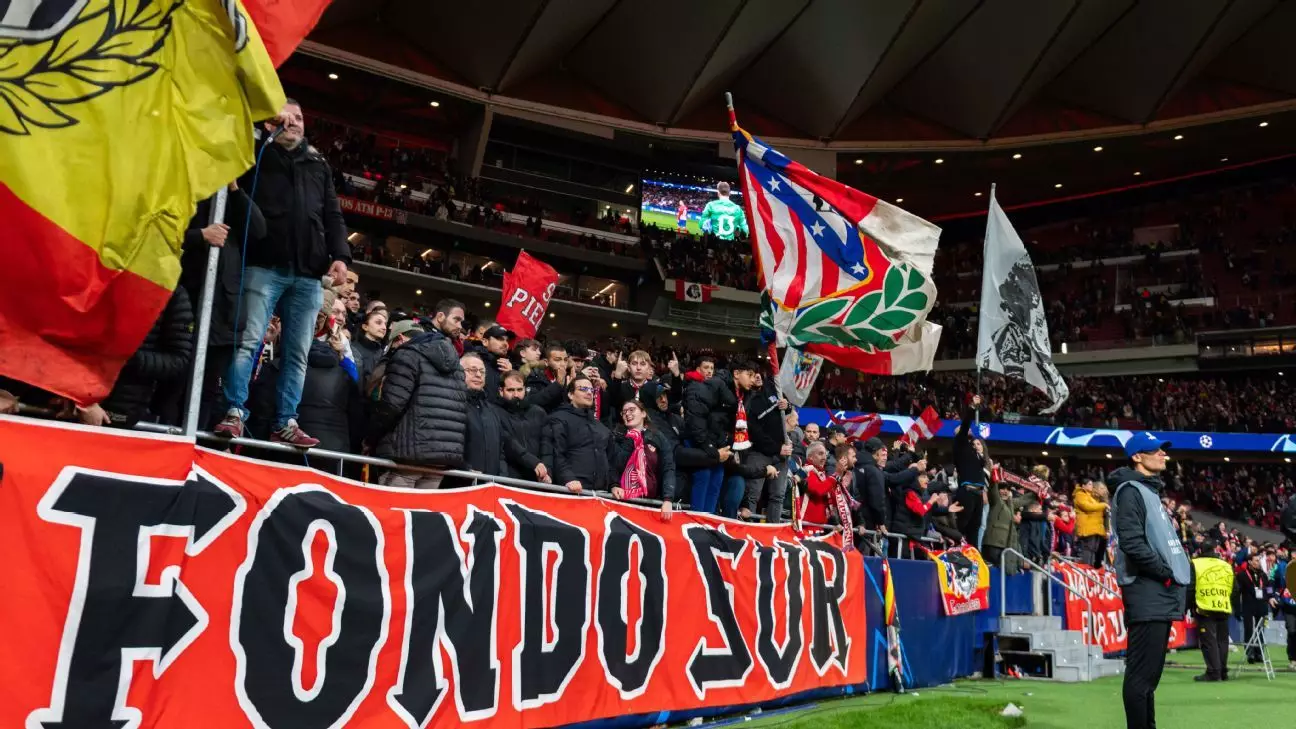In a startling turn of events, Atlético Madrid has been subject to a three-match partial stadium closure due to violent crowd behavior during a recent Madrid derby. However, after appealing this decision, the Royal Spanish Football Federation (RFEF) has reduced the sanction to just one game. This decision reflects an ongoing battle within football regarding the conduct of fans, the expectations of clubs, and the consequences that arise from breaches of conduct.
The Appeals Committee’s ruling not only mitigated the immediate punishment faced by Atlético but also reduced the financial penalty from €45,000 to a mere €3,000. In doing so, this decision illustrates a nuanced approach to governance within the sport. The appeal was influenced significantly by the club’s proactive measures following the incident, which included identifying and permanently banning four fans involved in the disruption. This positive response earned some reprieve from the federation’s committee, underscoring the importance of club accountability in maintaining decorum during matches.
During the derby match that transpired on September 29, 2023, chaos erupted as objects were hurled onto the pitch, leading to a prolonged stoppage of play. The incident, particularly alarming given the charged atmosphere of a high-stakes match against Real Madrid, prompted the referee to halt the game for over 15 minutes. Such occurrences raise crucial questions about crowd management techniques and the adequacy of security measures at sporting events. The subsequent dialogue between players, coaches, and fans to resume the game was indicative of the club’s commitment to ensure a safe environment, yet it does highlight a significant discrepancy in crowd behavior that needs addressing.
Despite the appealing adjustments, Atlético Madrid remains under scrutiny as Spain’s Anti-Violence Commission proposed a two-week complete closure of the Metropolitano stadium and an additional €65,000 fine. This potential escalation of punishment reflects societal attitudes toward violence in sports, asserting that any outbreak of disorder will not be tolerated. Moreover, these incidents have ramifications that extend beyond immediate penalties; they can mar the reputation of the club and disenchant loyal supporters who do not participate in such unruly behavior.
The challenges faced by Atlético Madrid are not confined to domestic leagues. The club has also encountered issues regarding crowds during UEFA matches. Recently, UEFA imposed sanctions leading to a €30,000 fine and a suspended ticket ban due to instances of discriminatory conduct. Such behavior not only tarnishes the club’s image but also continues to complicate its relationship with governing bodies in a sport striving for greater inclusivity and respect.
Atlético Madrid’s experience serves as a cautionary tale on the pivotal role that fan behavior plays in shaping the reputation and operational practices of sports clubs. While the initial penalties were softened, the overarching message remains clear: violence and discrimination have no place in football. Moving forward, the club’s approach towards its supporters must enhance community engagement and promoting exemplary conduct to rebuild trust and prevent future incidents that could jeopardize the integrity of the sport. The document that Atlético released detailing the damage to its image captures the importance of introspection within the club as they navigate the complex relationship between passionate support and appropriate conduct.

